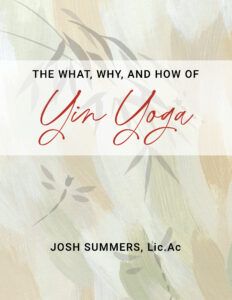Over the last two entries, here and here, I began to look at the potential ways in which a popular definition of mindfulness can lead to mis-application and/or confusion within the actual practice. The definition I’ve been critiquing is from Jon Kabat-Zinn: “Mindfulness means paying attention, in a particular way: on purpose, in the present moment, non-judgmentally.”
And in this final post of three, I’d like to continue with that exploration, now looking at the final aspect of Jon Kabat-Zinn’s definition: “non-judgmentally.” This, in my opinion, is the most problematic aspect of Kabat-Zinn’s definition, again not so much because of Kabat-Zinn’s intention behind it but because of the way this clause is all too frequently interpreted.
Frequently, I hear earnest mindfulness practitioners concerned by the fact that they notice themselves being judgmental of themselves and of others. And, often they express exasperation at the irony of judging themselves for not being non-judgmental enough. I hope a closer look into these terms will provide some clarity.
Judgmental, as defined in the Merriam-Webster, is an adjective meaning: “tending to judge people too quickly and critically,” or “characterized by a tendency to judge harshly.” Suggested synonyms: captious, caviling, faultfinding, hypercritical, rejective.
So far, these definitions fit well within the standard approach to mindfulness; a person practicing to be more mindful is encouraged not to reject any aspect of their experience, to allow anything and everything into their awareness equally and fully. Additionally, within mindfulness practice, people are cautioned against being overly critical of their experiences or themselves. So far, so good.
However, if we look further back to what the word judgment, itself, means, we can begin to see where many people might become confused. Here the Merriam-Webster defines judgment as: “the act or process of forming an opinion or making a decision after careful thought; the ability to make good decisions about what should be done.” This aspect of the word implies discernment, consideration and wise choices.
The Most Important Thing
A well-known Zen story tells of a student asking a Zen master, “What’s the most important thing in life?”
The Zen master answers: “Wisdom.”
Further asked, “Where does wisdom come from?” The Zen master replies: “Good judgment.”
And upon asked, “Where does good judgment comes from,” the Zen master pauses and (I imagine with a smile on his face) slowly says: “Bad judgment.”
In a nut-shell, this pithy Zen story sums up the entirety of the path: with greater awareness we become more sensitive to our thoughts and actions and to the results of those thoughts and actions. This refined sensitivity leads us from poor judgment to wiser and more compassionate judgment, but not the abandonment of judgment. In other words, this training in awareness is not so much about getting rid of our views and opinions, but much more one of upgrading to wiser views and opinions.
Two Kinds of Thoughts
The Buddha describes this development of discernment in the Dvedhavitakka Sutta: Two Sorts of Thinking. Here the Buddha analyzes his thoughts into two categories: 1) those that lead to harm for himself or for others, or for both, and 2) those that lead to the well-being of self or of others, or of both. He encourages us to abandon the former and cultivate the latter. And to do this requires a robust willingness to — dare I say it — judge.
All too often, however, being non-judgmental is conflated with being a person that does not judge. Students articulate this best when they say, “I’m judging myself for not being non-judgmental.” And therein lies the semantic problem, one that is understandable enough, but that leads to confusion and contradiction.
If I were to try and put the two together, I would suggest that — especially in formal meditation — we want to non-judgmentally allow our experience to be exactly as it is. We don’t want to condemn, deny or avoid any element of it. But once we’ve allowed our minds to gather and receive all the available data, there is a critical transition whereby we act upon that gathered intelligence with judgment – the sort of judgment that is increasingly wise.
Having now analyzed some of the potential problems with Kabat-Zinn’s definition, I will soon, in a subsequent post, propose a definition mindfulness that I think might be more accurate to one’s direct experience.
Originally published on April 26, 2015
Practice Opportunities:

